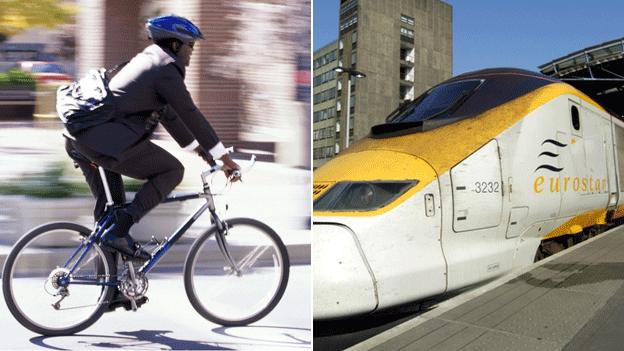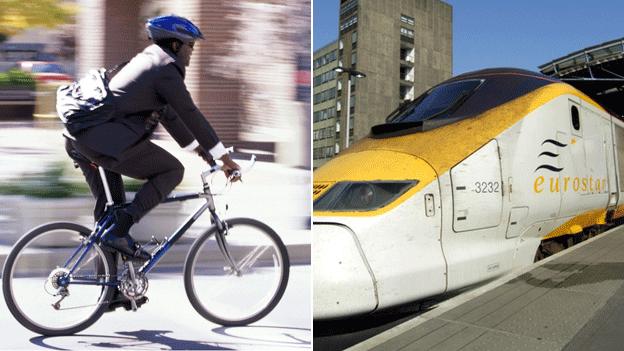Eurostar reverses bike storage decision amid criticism
- Published

Eurostar has reversed its decision to make cyclists dismantle their bikes before using the cross-Channel service.
The train operator initially said it wanted to store all bikes in what is known as a "bike box" - meaning bikes would have to be dismantled.
But cycling groups and London's Mayor Boris Johnson both criticised the move.
Eurostar said it would continue to take fully-assembled bikes after it admitted the change "concerned some passengers".
The company had intended for its change of policy around bike storage to come into force on 1 November.
'Save space'
It wanted cyclists to remove the wheels of their bikes, place them in a bike box, and then reassemble them when they reached their destination.
The company argued this would allow it to carry more bikes and utilise luggage space more effectively.
But the move was criticised by cycling charity CTC who said it would discourage cyclists from using the service as some passengers would find it "too difficult" and an inconvenience.
The charity set up a campaign which accrued 9,700 signatures of support from the cycling community, and called for Eurostar to reverse its decision.
Meanwhile, Mr Johnson said the move "undermines Eurostar's green pretensions" and the All Party Parliamentary Cycling Group, as well as Paris Mayor Anne Hidalgo, were also against the change.
'Listen to feedback'
A Eurostar spokesman said: "After careful thought and planning we have taken the decision to continue to allow fully mounted bikes on board but of course this can only be a small number because of the space constraints.
"We always listen carefully to feedback."
The operator's long-standing policy has been for cyclists to pay a £30 fee for their bike to be carried on their train via a registered luggage system. The bike is hung on a storage rack by its tyres.
CTC chief executive Paul Tuohy said: "It's fantastic news that the views of so many of our members and other cyclists across Europe have been listened to.
"This proves how a successful, well-run campaign can be a massive force for good and make things happen."
- Published14 October 2015
